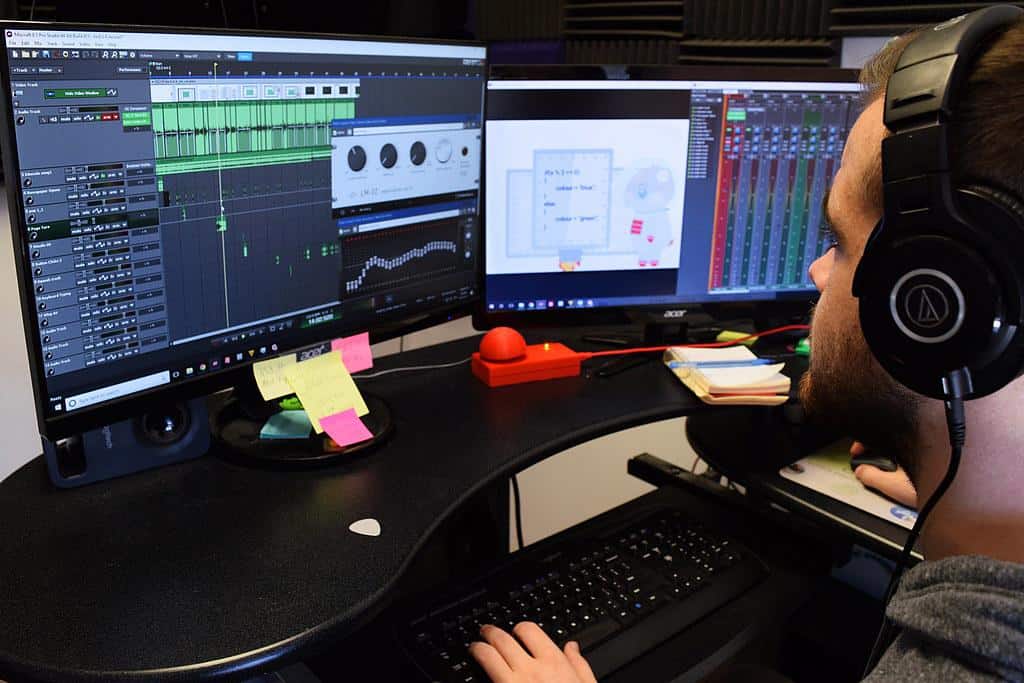

These 10 Rookie Mistakes Are Killing Your Mix
There used to be a time were the only way to create a professionally sounding record was to be lucky enough to be granted the opportunity to record in a multi-million dollar studio stacked up with expensive analog equipment after being discovered by some big artist or label. Fortunately, the advent of more modern technologies such as DAWs, plug-ins, and AI have granted anyone with a computer and some inexpensive recording equipment the ability to replicate a similar quality of sound to that of a professional studio in their bedroom. With that being said, this accessibility has also made the music industry more competitive than ever, so the same fundamentals of production that have been used in the big show for decades mustn’t be ignored, as this will be the difference between thinking you are the hotshot of your trashy bar’s open mic night and being the headliner at EDC. Here are 10 rookie mistakes to avoid if you want to increase your chances of becoming the latter.
1) You fail to realize that your mix is only as good as the song that you are mixing.
Let’s be honest, at one point, you logged into Splice and started dragging the first drum and bass loop you find into your DAW, and then proceeded to spam the duplicate shortcut until you have a three-minute song. Then you add some vocals that a thousand producers have already used and slap an Ozone plugin on the master to do all the mixing work for you. Congratulations, you just finished your first track and now you’re a hotshot with a song that nobody will ever listen to. Lucky for you, this terrible fate can be avoided by learning the basics of music theory and how to structure your music in a way that sounds good and keeps the listener’s attention throughout the whole song. If you fail to do this, there will be no point in fixing the rest of these 10 rookie mistakes
2) Your bedroom studio is an acoustic nightmare.
If you are working on a strictly electronic track with nothing but your computer and a pair of headphones, you can easily get away with working in an untreated room. However, most producers will want to switch between their headphones and their studio monitors to test out their mix on different platforms. Furthermore, many producers will also find themselves recording vocalists and session musicians at some point. For both the purposes of mixing and for obtaining recordings that are free of room reflections, it is important to invest in some sort of acoustic treatment so that your audio can be heard in its best light while mixing decisions are being made.
3) You don’t pay enough attention to sound selection.
A good rule of thumb to follow when creating a decent mix is that you will hate life a lot less in the mixing stage when you start with quality sounds that are easy to process. This is why training your ears to recognize audio that fits in the mix is one of the most important skills that any producer must possess. To not do this would be akin to a chef attempting to impress Gordon Ramsay with anything less than the finest ingredients. He will call you a donut. When you start with clean samples that complement your mix, you will save countless hours of unnecessary mixing time that would otherwise be spent trying to polish a turd.
4) You don’t use reference tracks.
It’s fair to say that many of the most successful musicians in history were never blessed with the musical IQ of Mozart or the musical knowledge provided by an expensive degree from Berklee. While it would be very beneficial to have either of those, we are here to tell you that none of that is necessary to write good music. If there is one thing that will guide you to writing the next banger that gets played by every DJ at EDC, it is learning how to reverse-engineer reference tracks. This is a vital tool in your arsenal that will provide you with a template that you can use to study the characteristics of a well-written song that allowed it to make waves in the charts. When using a reference track, make sure to pay close attention to things such as the tempo, key, rhythm, and instruments used in your reference track.
5) You don’t know how to use your plug-ins.
Now that you have taught yourself how to compose a well-written song, you are ready to start the daunting tasks of sound design and mixing. With that being said, you are left with an overwhelming amount of plugins and no clue what any of them do. One of the 10 rookie mistakes that are commonly seen at this point is that producers will start slapping on a million plugins to bandage their audio without any understanding of their purpose. If you would like to be like a doctor that prescribes medicine to patients without knowing what any of the effects are, then, by all means, continue to use your beloved Soundgoodizer army to make your mix sound like farts. On the contrary, if this does not sound like you, then it is in your best interest to take the time to learn how basic plugins such as EQs, compressors, saturators, and limiters work so that way you can make informed decisions with intent at every stage of the production process.
6) You haven’t educated yourself on the concept of gain-staging.
The concept of gain-staging elaborates on the last tip in terms of understanding the effects of every mixing decision you make. One thing that needs to be understood before adding any plugin is that every plugin you add to your rack becomes a part of a signal chain or the path that an audio signal takes to reach its end destination. It is important to remember that every stage, or step that is added in that chain accumulates gain that can be heard on your master track. To create headroom for all of the processing that you will need, make sure you are compensating for that added gain with either the gain/output settings that are built into some plugins, or a utility plugin if that parameter is not available. Doing this will allow your mix to sound much cleaner once you reach the mastering phase of your production.
7) You push your plugins way too hard.
Another thing to consider when trying to achieve a clean, loud, and full mix is that each plugin works better when you use them in many small instances that add up to your desired effect. This is called serial processing, and in most cases, it is far more effective than using one or more plugins and cranking them all up to 11. When you push your plugins way too hard, you are left with an overall sound that is distorted, filled with artifacts, and unpleasant to listen to. To achieve a fuller sound without killing your mix, try turning down the dry/wet knob on a series of two or three similar plugins so that you compile the sonic effect without compromising the integrity of your sound.
8) You don’t mix in mono.
Perhaps the single most effective tool that is going to help you achieve a mixed quality that will sound good on any speaker is your mono button. The idea behind this comes from the fact that your goal as a music producer is to create something that will be heard by the most amount of people. This means taking into consideration that high-quality speakers are expensive and less accessible to the average person than a cheap Bluetooth speaker, a phone speaker, or even a ceiling speaker that is found in many commercial settings. To create a quality mix that can be enjoyed on all devices, including the ones that lack stereo output capabilities, you will need to replicate the conditions that the majority of your audience will be listening to your music with.
9) You need to show the bypass button more love.
You may have noticed that every plugin you have ever used either has a bypass button or an on/off switch. Both of these buttons do the same thing, and they serve the purpose of allowing producers to perform A/B tests on their mixing decisions. This will allow you to bypass all of these 10 rookie mistakes by listening to how your plugins are affecting your sound, which will help you decide if they are worth keeping in your mix. The last thing you want is to have a bunch of unnecessary plugins that create unwanted sounds and eat up the CPU.
10) You aren’t taking full advantage of the stereo field.
As a producer/audio engineer, your main goal when mixing is to provide each instrument with its own space to shine so that every element can be heard clearly. If you have ever attended any live concert, you may have noticed that every instrument is spread out across the entire stage, with every instrument almost always in a similar configuration. The reasoning for this is that when multiple sound waves collide, they cancel each other out if they are not lined up properly. This is called phase cancellation. In the case of digital production, you do not have the luxury of having a 50-foot stage to space your instruments across. This means that you will have to artificially replicate that space within your DAW. You can accomplish this by widening all of your layers based on their frequency. To do this, imagine an upside-down triangle where lower frequency instruments are bottlenecked on the bottom, while the higher ones are spread out as you approach the top of the spectrum.
In conclusion, avoiding these 10 Rookie Mistakes will set you up to become a way better producer than 99% of people who try. Of course, this is not everything that you will need to know, but it will be enough to get you off to a good start. If you would like to learn more about how you can improve as a music producer, we invite you to read our article on the 10 best YouTube channels for learning music production.
Image credit: MarcLeblanc18 (Flickr)


- Arodes cover Interview
- Armin van Buuren: Breathing In [Exclusive Interview]
- Ibiza 2024: What To Expect
- Burak Yeter: A Day In Space [Exclusive]

